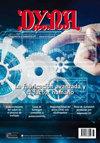COMPUTATIONAL CHARACTERIZATION OF THE USE OF HYDROGEN IN A BURNER NOWADAYS USING NATURAL GAS
IF 0.7
4区 工程技术
Q3 ENGINEERING, MULTIDISCIPLINARY
引用次数: 0
Abstract
The implementation of hydrogen as a fuel in industrial applications is an upward trend, and poses a challenge for the design of furnace burners. This article aims to advance in the knowledge of hydrogen combustion, through numerical simulation using SIEMENS STAR-CCM+ code. Several simulations have been carried out with the geometry of a 2.5 MW burner of the current SIDENOR furnace. The fuel burning there, is natural gas. Using the same geometry and the same mesh, a comparison is made between current temperatures and those that would arise when burning hydrogen, as well as mass fractions of other elements such as NOx. Maintaining the power of 2.5 MW and taking into account the lower heating value of methane and hydrogen, the inlet boundary conditions are calculated for the different fuel compositions. In this way it can be seen, qualitatively, the amount of hydrogen needed to meet the necessary temperatures in the billets, without excessive NOx production. Key Words: Hydrogen, burners, Computational Fluid Dynamics, NOx如今在使用天然气的燃烧器中使用氢气的计算特征
氢气作为燃料在工业应用中的应用呈上升趋势,这对熔炉燃烧器的设计提出了挑战。本文旨在通过使用西门子 STAR-CCM+ 代码进行数值模拟,加深对氢气燃烧的了解。燃烧的燃料是天然气。使用相同的几何形状和相同的网格,对当前温度和燃烧氢气时的温度以及氮氧化物等其他元素的质量分数进行了比较。在保持 2.5 兆瓦功率的情况下,考虑到甲烷和氢气的热值较低,对不同燃料成分的入口边界条件进行了计算。通过这种方法,可以定性地看出在不产生过多氮氧化物的情况下,满足坯料所需温度所需的氢气量:氢、燃烧器、计算流体动力学、氮氧化物
本文章由计算机程序翻译,如有差异,请以英文原文为准。
求助全文
约1分钟内获得全文
求助全文
来源期刊

Dyna
工程技术-工程:综合
CiteScore
1.00
自引率
10.00%
发文量
131
审稿时长
6-12 weeks
期刊介绍:
Founded in 1926, DYNA is one of the journal of general engineering most influential and prestigious in the world, as it recognizes Clarivate Analytics.
Included in Science Citation Index Expanded, its impact factor is published every year in Journal Citations Reports (JCR).
It is the Official Body for Science and Technology of the Spanish Federation of Regional Associations of Engineers (FAIIE).
Scientific journal agreed with AEIM (Spanish Association of Mechanical Engineering)
In character Scientific-technical, it is the most appropriate way for communication between Multidisciplinary Engineers and for expressing their ideas and experience.
DYNA publishes 6 issues per year: January, March, May, July, September and November.
 求助内容:
求助内容: 应助结果提醒方式:
应助结果提醒方式:


